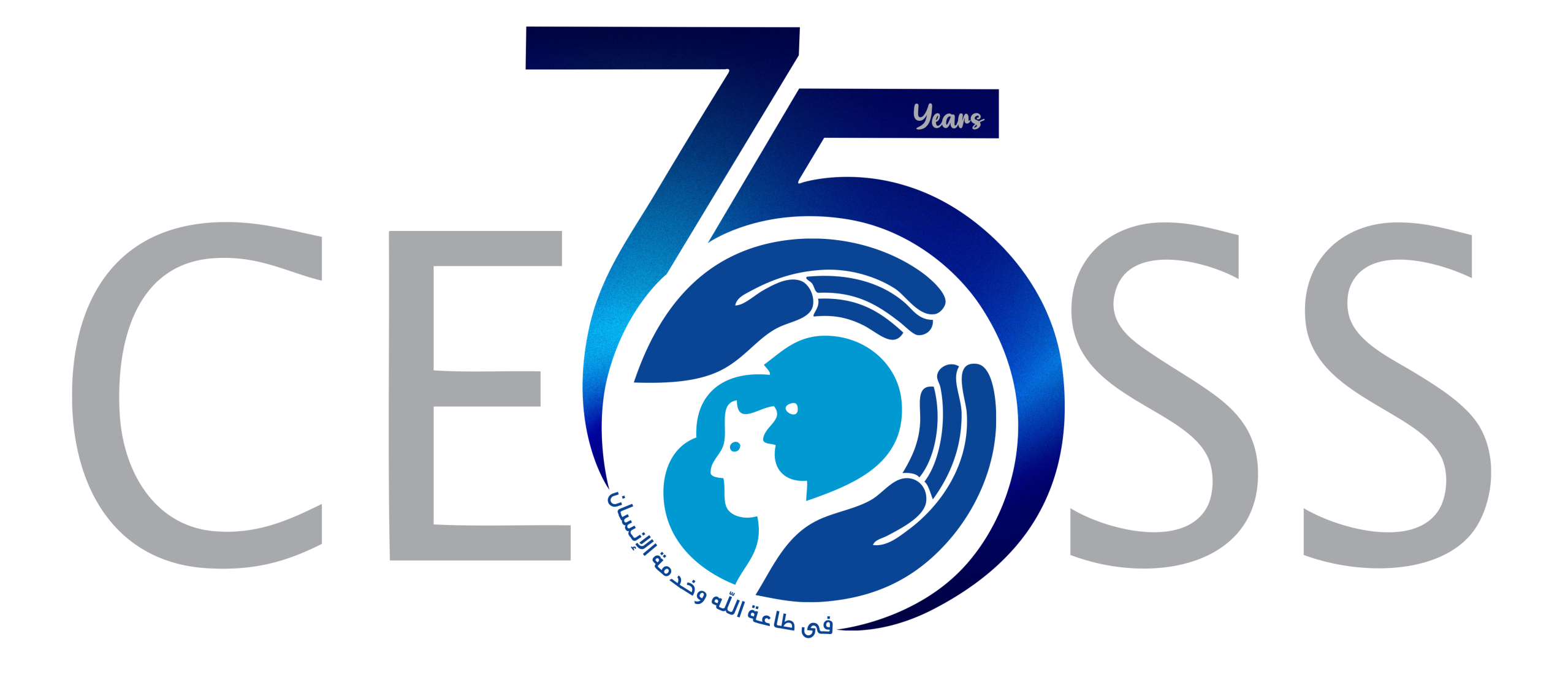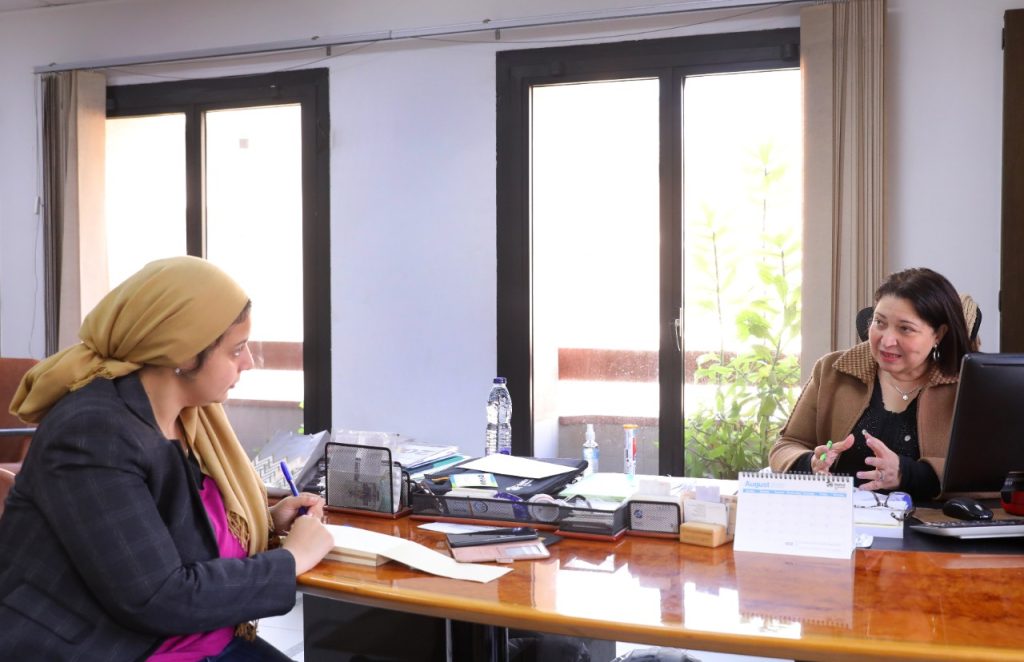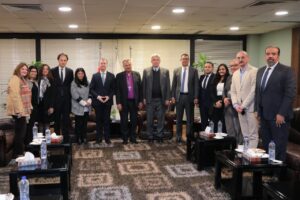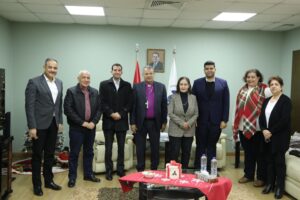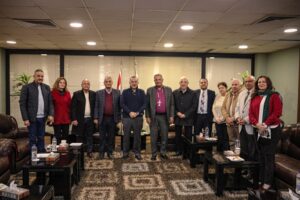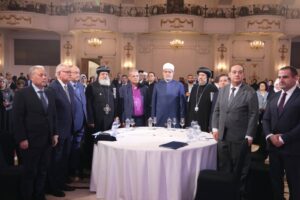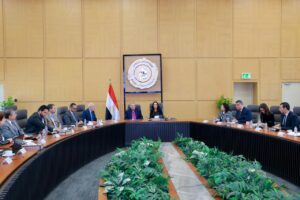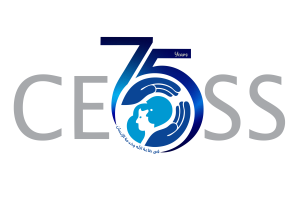The seeds of an initiative called Cultivate (Ezraa) are about to yield fruit with the advent of the wheat harvesting season. The plan focuses on planting Egypt’s strategic crops such as wheat and soybean, an essential component in feed, to make them available for local consumption and decrease their imports.
The initiative was launched by the Coptic Evangelical Organisation for Social Services (CEOSS) in October 2022 under the umbrella of the National Alliance for Civil Development Work (NACDW). The NACDW kicked off in March 2022, the Year of Civil Society, with the membership of 34 foundations nationwide.
In its initial phase, the campaign targets planting 150,000 feddans of wheat, and giving the 100,000 participating small farmers in 300 villages in eight governorates 1.5 feddans each to expand agricultural lands planted with wheat. It provides high-quality seeds in cooperation with the Ministry of Agriculture.
Margaret Saroufim, coordinator of Cultivate and head of the Local Development Unit at the CEOSS, told Al-Ahram Weekly it is the culmination of years of working closely with small farmers.
The CEOSS has extensive experience in agriculture, seeing that it is imperative its efforts are pooled together to curb the repercussions of the Russia-Ukraine war which has led to skyrocketing prices of imported goods, Saroufim said.
The organisation has a database comprising 40,000 small farmers, Saroufim noted, adding that 25 per cent of Egypt’s labour force works in the agricultural sector and that 85 per cent of these are small farmers.
Saroufim believes agriculture “is the catalyst of development work. When working in the agricultural field, you develop the economic and social sectors, empower women, and improve the living conditions of people in the countryside,” referring to the UN concept of sustainable development which is more concerned with the economic, social, and environmental aspects.
According to the CEOSS, small farmers own or rent no more than three feddans of agricultural land. “The organisation works with small farmers to improve and increase their production and reduce production cost.”
A farmer may have the land but lacks the knowledge and the means. “That’s where the CEOSS comes in,” she said. “The organisation provides technical support, agricultural guidance, and courses. In the latter, an agricultural expert explains to farmers in four or five sessions the right practices to plant wheat or soybean,” Saroufim explained.
These practices include preparing the land for planting, the appropriate time for sowing, and the means to eliminate pests, weeds, and diseases, all through to harvesting date, she stated.
Of great concern to farmers is providing marketing contracts to make them feel secure and to know the price of the harvest and the buyer, she added.
On 12 April, the cabinet approved an incentive for wheat farmers who can sell their wheat this season for LE1,500 per ardeb (150 kg).
The CEOSS has been supporting small farmers since the 1990s with the private sector. Before the launch of Cultivate, the organisation had been coordinating between businessmen and small farmers and drafting marketing contracts between the CEOSS, businessmen, and farmers to secure the rights of all parties. Businessmen provided farmers with high quality, subsidised seeds and bought their harvest which ranged from medicinal and aromatic plants to potatoes and beans, Saroufim said.
“We work on connecting small farmers with the most profitable markets. For the past 15 years we have been working annually with 65,000 small farmers from different governorates,” she noted.
“In recent years, we have been more focused on the relationship between agriculture and climate change. The alarm bell was loud and clear in March 2020 when the ‘dragon storm’ and heavy rainfall hit agricultural lands hard. This is when we started establishing a connection between climate change, agriculture, and technology.
“Hence, we created the Al-Morshed Al-Zaki (Smart Guide) Android application which monitors climate change” and helps farmers enhance the quality of crops, connect to profitable markets, and convert plant waste to compost. ‘‘The application measures weather changes such as heat, rain, and wind to provide advice on the best time for irrigation. It also provides tips on means of fertilising,” Saroufim explained.
She explained to the Weekly that although many farmers may be illiterate, which will hinder their interaction with the application, “they can seek the help of their offspring or literate people in their circle.”
The CEOSS, which has been working in development for 70 years, also extends its help to farmers by boosting the knowledge of rural women who work in farming or livestock to increase their income and participate in enhancing food security, she added.
One of the biggest challenges facing Cultivate is that the farmers’ agricultural lands are located in different places, making it difficult to establish a mechanised irrigation system, Saroufim noted.
The organisation, which serves three million people annually without discrimination, adopts a democratic system to secure the rights of all people. Saroufim pointed out that farmers elect a committee that represents them which helps create social movements and successful civil work.
“The CEOSS believes in people power. People take pride in their work. We teach them and we learn from them,” Saroufim said.
